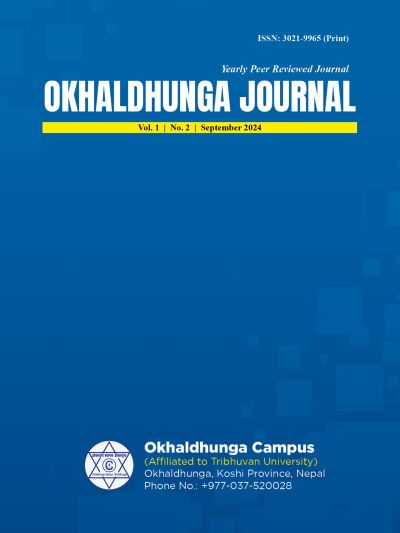The Interplay of Language, Ideology, and Power
DOI:
https://doi.org/10.3126/oj.v1i2.69565Keywords:
language, ideology, rhetoric, politics, power, linguistic determinism, language, ideology, rhetoric, politics, power, linguistic determinismAbstract
Language is a powerful vehicle for ideology, serving not only as a means to political ends but also as a fundamental ground for attaining and maintaining positions of power. This article explores the intricate relationship between language, ideology, politics, and power, examining how linguistic devices such as implicature are utilized to influence public perception and shape political discourse. By analyzing specific political statements, the article demonstrates how language can imply more than what is explicitly stated, subtly indoctrinating individuals or groups with certain ideological positions. It delves into the role of language in reinforcing dominant ideologies, highlighting the challenges faced by those who question these ideologies. Through this analysis, the article underscores the critical function of language in both reflecting and propagating power dynamics within society. The study also investigates the concept of linguistic determinism and its potential implications for thought control. By understanding these mechanisms, we gain insight into how language is employed to seek consent, legitimize authority, and perpetuate ideological beliefs, ultimately shaping social, political, and power structures.




